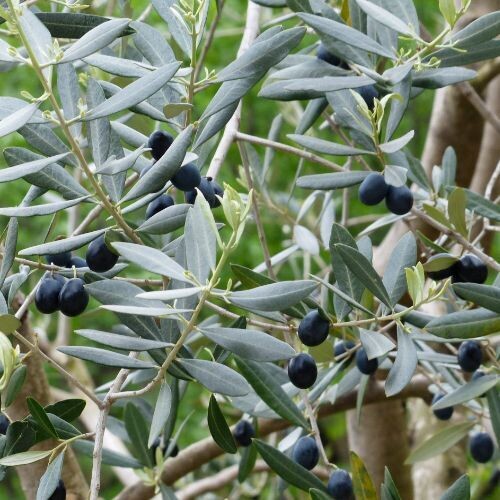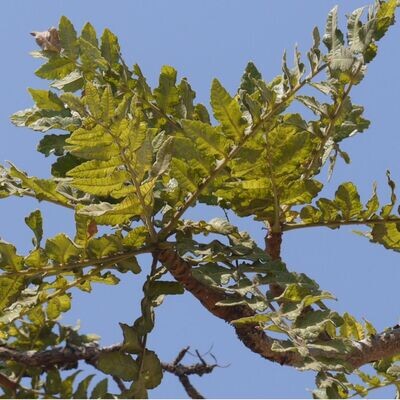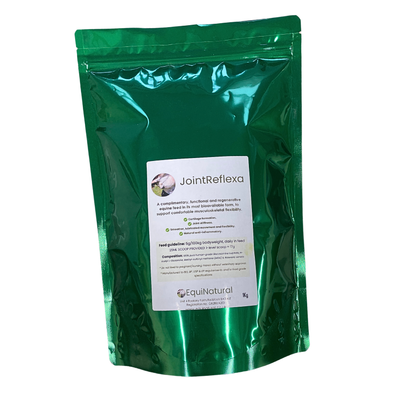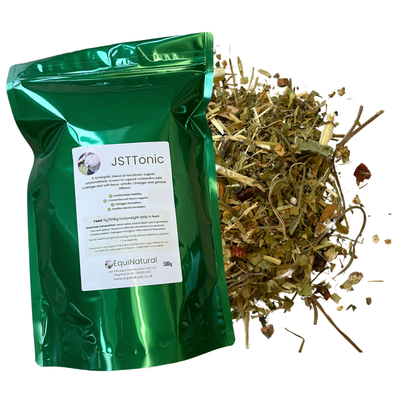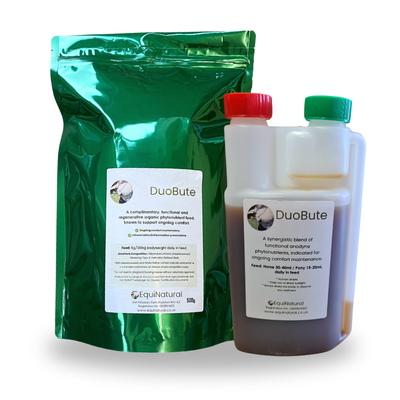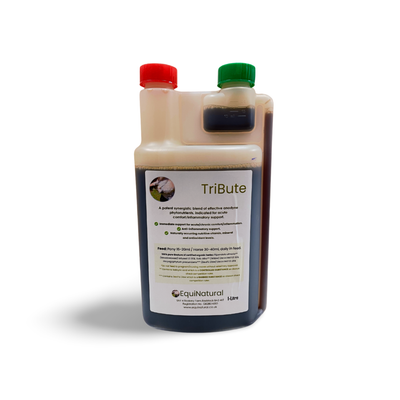ESTABLISHED 2006
Over 50,000 Orders Shipped
NEXT DAY UK DELIVERY
Worldwide Shipping 3-5 Days
SUBSCRIPTIONS
Subscribe & Save!
RATED ★ ★ ★ ★ ★
1100+ 5* Reviews
OLIVE LEAF (Olea europaaea)
Available in tincture form for swift efficacy into the bloodstream and improved bioavailablity.
Please note this is a nutritional, functional horse food supplement and not veterinary medicine. See Dr Kellon's Horse Sense - 'Nutrition is not 'Alternative' Therapy.
Tincture
Our human-grade, certified organic tinctures give you a ready-to-absorb potent source of phytonutrients at the highest-strength available, for immediate absorption straight into the bloodstream and to the body’s cells.
~ 100% certified organic pure tincture
Olea europaaea (Olive leaf), Organically cultivated, Infused 1:3 25%
~ Feed Guide
- 6ml/100kg bodyweight, daily in feed.
- Always shake the bottle to disperse any sediment.
- 3-year shelf-life.
Functional Nutritional Value
Constituents: Secoiridoid monoterpenes (e.g., oleuropein), triterpenoids, flavonoids, hydroxytyrosol
NB. Our range of botanicals are all grown, harvested and dried without the use of agri-chemicals, non-irradiated and GMO free - see our Quality page for Quality Management & Certification Documents. Laboratory tested for identification and compliance to the British and European Pharmacopoeia standards. Human grade.
Please be aware that if you're purchasing our dried botanicals for human use, our dried range is cut to appropriate sizes for feeding to horses.
More ...
The humble olive tree, Olea europaea , has been an integral part of human history and culture since its cultivation began in Greece before 3500 BC. It was the original globetrotter, making itself at home from Africa to New Zealand, and made its way to the Americas by the 16th century.
The ancient Greeks loved their olive trees. They weren't just for snacking; olive branches symbolised peace, prosperity, and were the original Olympic medals. They even played a crucial role in marriage ceremonies. The Romans, not to be outdone, used them as peace tokens. This symbolism was embraced by various cultures and religions, with olive branches appearing in Christian, Islamic, and Jewish traditions as symbols of peace and purity.
Olive leaves were the ancient go-to remedy, used for everything from treating fevers to spicing up love life with a bit of magic, seriously. Women would stand beneath an olive tree, back towards the trunk, then pick an olive leaf and toss it over her right shoulder while reciting, “Go forth, little messenger, like Noah’s faithful dove, and bring to me an olive-leaf of love." If the leaf fell to the ground, it meant misfortune in love, but if caught and carried by the wind, it was a sign that she would be a happy wife within a year. ;-)
Olea
comes directly from the Latin noun olea
, meaning either 'an olive' or an 'olive tree.' Medicinally, olive leaves have been used since ancient times, with their healing properties documented by Greek and Roman texts. In modern times, scientific interest has reignited in the leaf's potential, particularly focusing on oleuropein
, a compound known for its astringent, antioxidant, anti-inflammatory, antimicrobial, febrifual, and disease-fighting properties.
Modern day research has explored olive leaf extract's benefits for cardiovascular health, diabetes management, and even anti-cancer potential. Studies also show it's antioxidant and anti- inflammatory properties have exhibited an antiulcerogenic therapeutic option to support gastric ulcers, while taking olive leaf with meals may avoid gastrointestinal discomfort (Winston & Kuhn, 2008).
Furthermore, olive leaf extract has gained popularity as a dietary supplement, especially in light of the Mediterranean diet's heart-healthy reputation. Its use in traditional medicine across various cultures, for conditions ranging from fevers and infections to hypertension and diabetes, has sparked a wave of scientific inquiry into its therapeutic potential.
So, there you have it, a tale of the olive tree: part global traveller, part ancient influencer, and full-time provider of tasty snacks and health benefits. A supremely impressive tree, with deep historical roots and a wide-ranging impact on human culture, health, and religion.
The EquiNatural Blog

Menu
Get in Touch
+44 01761 325032
mail@equinatural.co.uk
Unit 4 Rookery Farm, Radstock, BA3 4UL
Terms & Conditions
Privacy Policy
Legal Notice
Stay Connected
Subscribe to our emails for the latest insights, updates, tips, and offers.
Contact us
Thank You for Joining Us!
We’re so pleased to welcome you to the EquiNatural community. Keep an eye on your inbox for updates, tips, and exclusive offers to help your horse thrive naturally.
Warm wishes
The EquiNatural Team
Please try again later
Any information contained within is not intended to replace veterinary or other professional advice.
*
Trading Standards EC Feed Hygiene Regulation (183/2005), Registration No. GB280/4203
* HACCP certified facility (an international standard that ensures we meet food safety standards)
* Registered in England. Company Number 11075894 - Reg'd Office: Unit 10 Rookery Farm, Radstock BA3 4UL
* VAT No. GB 310214964

